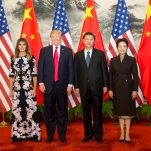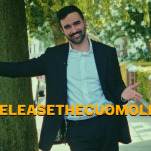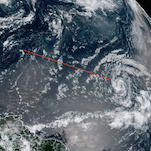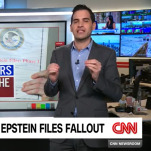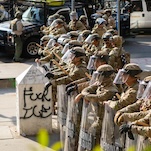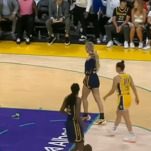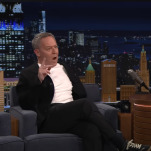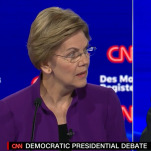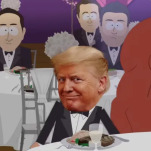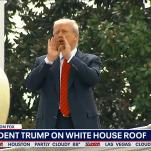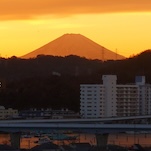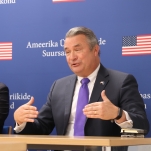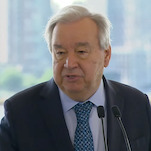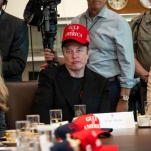Cerati, Latin American idol
Gustavo Cerati, lead singer of legendary Argentine band Soda Stereo and a renowned solo artist, died on Thursday in Buenos Aires. He had spent the last four years of his life in a coma following a stroke in 2010, when he was on tour through Latin America.
More: Remembering Cerati, from those who knew him —including Residente from Calle 13 and Alex from Maná.
The cause of death was respiratory failure, doctors said in a statement. The rock idol, who was also a virtuous guitarist, was 55.
Influenced by bands like The Cure and The Police, Cerati (guitar, vocals) teamed up with Héctor “Zeta” Bosio (bass) and Charly Alberti (drums) as university students in the early 80s to give birth to Soda Stereo, one of the most influential -– if not the most influential — rock groups that headed the rise of what became known as Rock en Español in the 80s and 90s that included acts such as Cafe Tacvba from Mexico and Aterciopelados from Colombia.
”Soda Stereo was the result of the music machinery of the time”, said Nicolás Vallejo, music editor for Vice magazine in Colombia. “The empresarios back then came up with this concept of Rock en Español, a label that appealed to three generations of South Americans. There are great rock bands in the continent today, but the corporations are betting on different rhythms and genres”, continues Vallejo. “Today the word ‘rock’ sounds almost anachronistic.”
In the mid to late 1980s, Soda Stereo became a phenomenon in Latin America, just as MTV was arriving in the region. From Argentina they blew up in Chile, Peru, Venezuela, and elsewhere. “[Soda Stereo] was important because they were one of the first completely pan regional bands,” said José Tillán, who was an executive at MTV Networks in the 90s and then headed MTV Tr3s until 2013. “They were idols for folks like Juanes and Shakira.” (Cerati co-wrote and produced a few songs with Shakira for her “Fijación Oral Vol.1” album in 2005.)
“Latin American rock has always had stars and always had stadium-sized personalities, but Cerati was was one of its first truly great, truly artful, songwriters,” said Josh Kun, an associate professor at the USC Annenberg School for Communication and Journalism.
“His work with Soda Stereo in the 80s was proof to everyone that new wave and alternative rock from Latin America were not just copies of US and UK originals. His songs, and the way he sang them — so felt, so syrupy, so anguished, so modern — felt unmistakably original in the way all great new art announces itself out of nowhere,” he said.
After Soda Stereo disbanded with a hugely successful farewell tour in 1997, he pushed the boundaries of rock, dabbling in electronic and symphonic music that cemented his solo career and won him new generations of fans (he released 5 albums as a solo artist, including his last one, 2010’s “Fuerza Natural.”)
-

-

-

-

-

-

-

-

-

-

-

-

-

-

-

-

-

-

-

-

-

-

-

-

-

-

-

-

-

-

-

-

-

-

-

-

-

-

-

-

-

-

-

-

-

-

-

-

-

-

-

-

-

-

-

-

-

-

-

-

-

-

-

-

-

-

-

-

-

-

-

-

-

-

-

-

-

-

-

-

-

-

-

-

-

-

-

-

-

-

-

-

-

-

-

-

-

-

-

-

-

-

-

-

-

-

-

-











































































